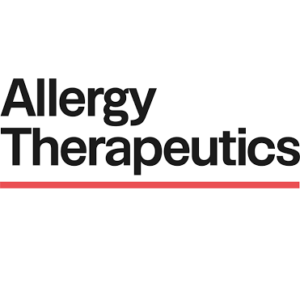Manuel Llobet, Chief Executive Officer of Allergy Therapeutics LON:AGY, commented: “It is exciting to announce that our portfolio of adjuvants can be combined to create adjuvant systems that deliver optimised immunotherapy in both allergy indications and infectious disease applications. Our strategy for growth with Bencard Adjuvant Systems focuses on extending the use of MCT with novel adjuvants to create novel adjuvant systems capable of increasing the effectiveness of new and existing vaccines with unmet needs, and or new and emerging infectious diseases that require an effective adjuvant system like AdSys-VcT.”
Allergy Therapeutics (AIM:AGY), the fully integrated pharmaceutical company specialising in allergy vaccines, together with its wholly-owned division, Bencard Adjuvant Systems (BAS), which specialises in developing and optimising adjuvants for prophylactic vaccination and allergen immunotherapy, announced this morning new data using a novel adjuvant system that shows enhancement of efficacy in a malaria vaccine model. These results will be presented today at the World Vaccine Congress in Barcelona, Spain at 16:00 CET.
In an oral session entitled: “Platform technologies to emerging pathogens”, Allergy Therapeutics’ principal scientist, Dr Matthew Heath, PhD, in conjunction with the Jenner Institute, University of Oxford, will present new information on adjuvant activity and enhanced efficacy in a candidate vaccine formulation againstPlasmodium vivax (malaria). Microcrystalline tyrosine (MCT), the aluminium-free depot adjuvant used in Allergy Therapeutics’ successfully marketed and rapidly growing Pollinex Quattro® immunotherapy product, was shown to elicit high, sustained antibody titres in a preclinical model and demonstrated increased protective efficacy compared to existing adjuvants.
Furthermore, Dr Heath will discuss how MCT has synergistic effects when coupled with Virus Like Particles (VLP) to create a combined and unique Adjuvant System, AdSys-VcT. The data indicated a significant increase in specific antibodies and other immune parameters indicative of protective efficacy compared to aluminium salts. The potential for this novel adjuvant system in infectious disease applications was concluded to be highly significant.
Allergy Therapeutics has been pioneering the development of novel adjuvant systems with the combination of MCT and monophosphoryl lipid A (MPL) in allergy immunotherapy, allowing for the successful introduction of the concept of ultra-short course immunotherapy in the allergy vaccines market.
BAS, the fully owned Allergy Therapeutics division specialising in adjuvant systems, has signed a Memorandum of Understanding with Saiba GmbH, the Swiss-based vaccines company, to develop new applications of its novel adjuvant system, AdSys-VcT, for use inprophylactic vaccination and food allergy immunotherapy. BAS has a portfolio of adjuvants with certain exclusive rights.
Dr Murray Skinner, Chief Scientific Officer of Allergy Therapeutics, said: “Our positive data on adjuvant development is great news in an environment where organisations such as the US National Institutes of Health describe a significant unmet need for adjuvants suitable for use in combination with the growing number of emerging and evolving infectious disease targets1. These data support our belief that Bencard Adjuvant Systems has a potentially wide range of applications and we look forward to further results and collaborations, such as this one, in infectious diseases.”


